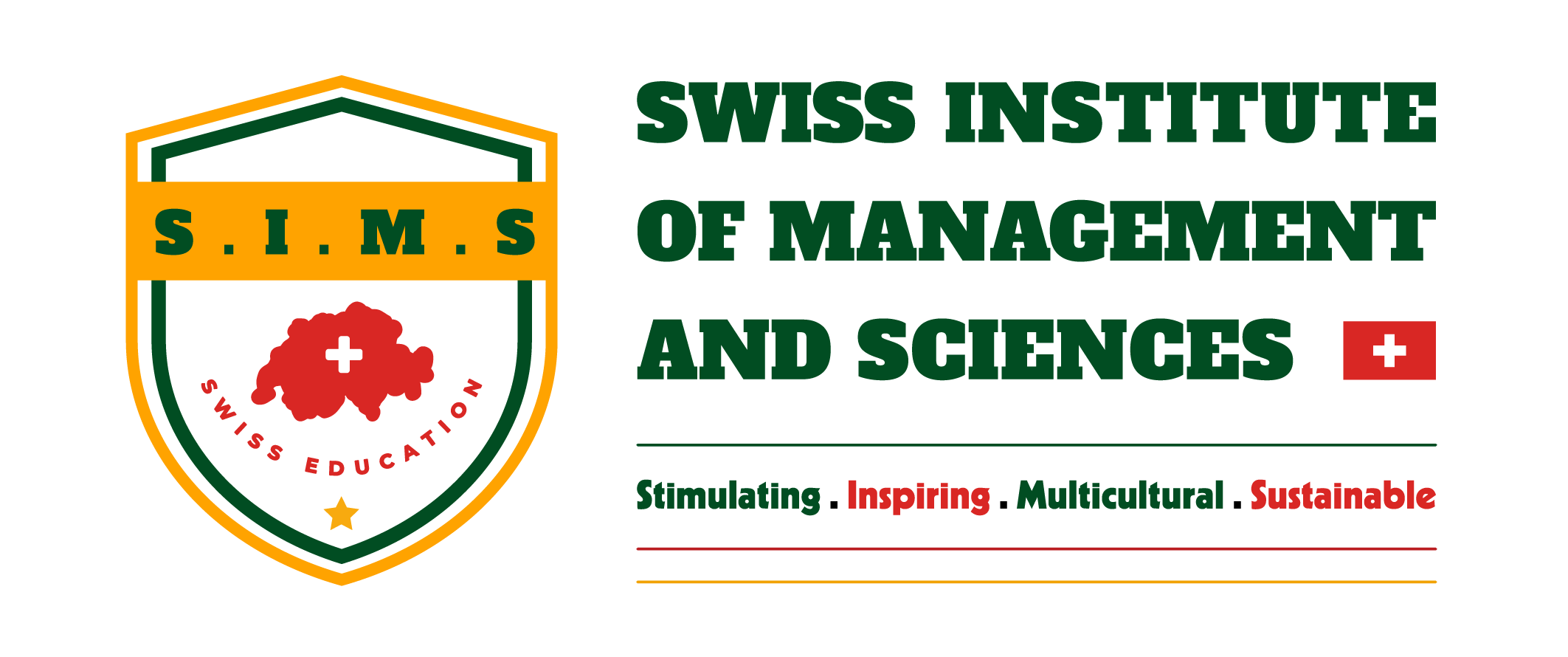Announcement: New Chancellor at SIMS
We are thrilled to announce the appointment of Professor Aleksandra Zajac as the new Chancellor of the Swiss Institute of Management and Sciences (SIMS), Professor Aleksandra Zajac’s vision for SIMS includes a strong emphasis on interdisciplinary collaboration, global partnerships, and technological innovation in business education. Under her leadership, SIMS will continue to enhance its global reputation and provide students with the skills and knowledge they need to succeed in an increasingly interconnected world. Please join us in welcoming Professor Aleksandra Zajac to the SIMS community. We are excited about the future under
Swiss Institute of Management and Sciences Joins EURASHE: A Step Towards Advancing Applied Higher Education
In the landscape of higher education, there exists a spectrum of institutions, each with its unique focus and mission. Among these, the emphasis on applied higher education holds a vital place, catering to the practical needs of students and industries alike EURASHE. Founded in Patras, Greece, in 1990, EURASHE has created an instrument to advocate for the interests of Europe’s extra-university sector of tertiary education vis-à-vis the European Commission and other stakeholders. EURASHE's inception stemmed from a vision to create a platform that amplifies the voices of Europe's extra-university sector within
Celebrating International Women’s Day: Honoring the Historic Journey of Women
International Women's Day is a momentous occasion that brings people from all corners of the globe together to celebrate women's incredible achievements and contributions throughout history. It is a day to reflect on the historic journey of women, their relentless pursuit of equality, and the progress we have made. Today, we honour the remarkable women who have paved the way for change and inspired us to continue striving for a more inclusive and equitable world. The Origin of International Women's Day The roots of International Women's Day can be traced back to
Flat Education – SIMS Swiss
In the context of a "Flat world," defined by Friedman as the levelling of the global playing field through factors such as globalization, where individuals from third countries can participate in advanced economies, the evolution of the digital economy, and enhanced transportation systems, multinational corporations have propelled themselves towards embracing a borderless society. This transition reflects a growing aspiration among individuals to adopt a global citizenship mindset. Recognizing this shifting landscape, the Swiss Institute of Management and Sciences (SIMS) is committed to offering a comprehensive educational program. Led by a team
Why Opt for Higher Education in Switzerland
In recent years, the appeal of pursuing higher education in Switzerland has witnessed a notable surge, with international students increasingly choosing Swiss institutions. Even amid the challenges of the 2020 pandemic, Swiss universities experienced a remarkable 4 percent rise in international student enrollments, a stark contrast to the declines observed in other popular study abroad destinations during the same period. According to data from the Federal Statistics Office (FSO), the enrollment percentages for bachelor’s, master’s, and doctoral programs stood at 15 per cent, 20 per cent, and an impressive 50
Elevating Excellence: The Swiss Education System’s Emphasis on Quality Over Ranking
In the realm of global education, the Swiss approach stands as a testament to prioritizing substance over superficial accolades. Unlike many educational systems fixated on rankings, Switzerland's commitment lies in maintaining a standard of quality that transcends mere numbers. Quality Assurance: A Pillar of Swiss Education Switzerland's education system, renowned for its excellence, is not driven by the relentless pursuit of ranking supremacy. Instead, it places a premium on the quality of education imparted to students. The emphasis is on cultivating a learning environment that fosters critical thinking, innovation, and practical skills
Online Learning Will Destroy Traditional Learning?
Following the COVID pandemic, online learning is becoming increasingly popular. The benefits of online learning in education are apparent, but can it replace traditional classroom learning? It is simple to obtain information about the benefits of online learning, such as cost savings, time flexibility, the elimination of geographical location barriers, and visa application materials for studying abroad. Why do most people still continue to study abroad full-time and believe that it is the best option for undergraduate and master's degrees? What benefits does the traditional form of learning really bring
Deciphering the Approach of Hybrid Learning
Hybrid Learning Hybrid learning amalgamates traditional face-to-face instruction with remote or distance learning methods, including experiential learning and remote course delivery. The primary goal is to strike an optimal balance of learning strategies, efficiently delivering content while catering to the diverse learning needs of students. Importantly, supplementary learning strategies are intended to complement traditional in-person instruction rather than replace it. For instance, in a two-day weekly class, a hybrid learning instructor might allocate one day for a practical laboratory assignment or an online task while dedicating the other to an in-person
Comparing an EdD and a PhD in Education
Ph.D. or EdD? Aspiring education leaders encounter this as one of the initial choices when examining possibilities for advanced degrees. Never before has the discipline experienced a greater demand for leaders. Educators presently encounter a multitude of challenges, including but not limited to the integration of novel educational methodologies and technologies, the resolution of diversity and other social concerns, and the management of expanding demands for remote learning. Prior to pursuing an EdD or PhD, prospective students must examine the distinctions between the two in order to ascertain which track
Switzerland – One of the top global education systems
Education is a systematic process of acquiring knowledge, skills, values, and attitudes to develop an individual's potential and prepare them for meaningful social participation. It is a lifelong journey that involves formal and informal learning experiences. Education encompasses a wide range of activities and methods, and it can take place in various settings, including schools, universities, workplaces, and beyond. The following values of education explain how the Swiss Education system is one of the top global education systems. A few key principles characterize Swiss education philosophy, a well-regarded education system: Vocational Education Switzerland












